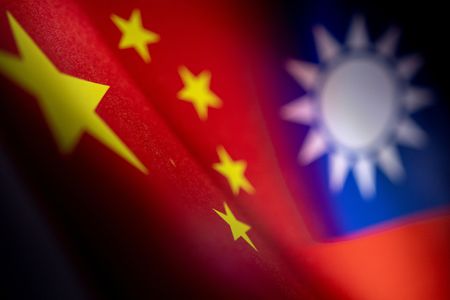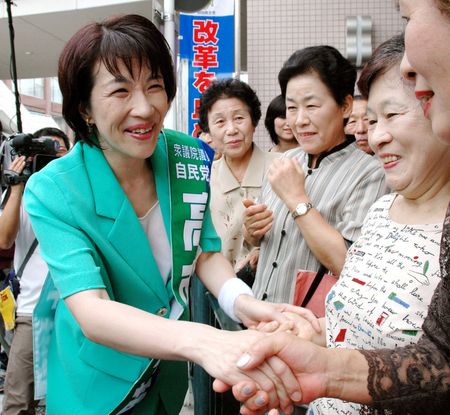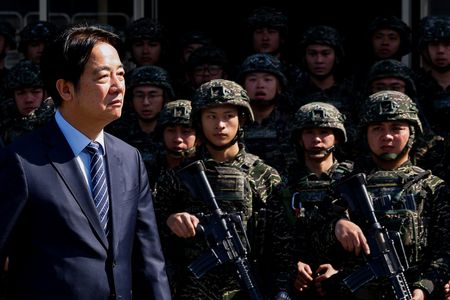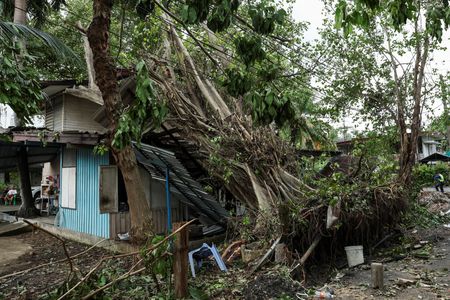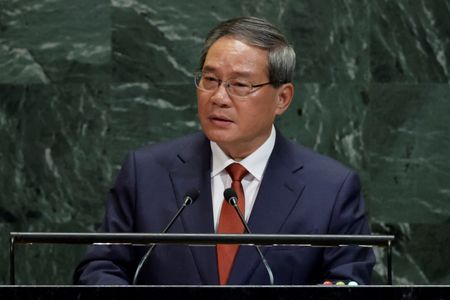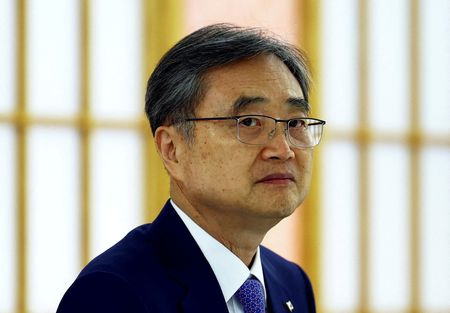BEIJING/TAIPEI (Reuters) -China called on the European Union on Tuesday not to “challenge” a 1971 U.N. resolution that led to Beijing assuming China’s seat in the organisation from Taipei.
China and Taiwan, which Beijing views as its own territory, have been locked in an increasingly bitter dispute about U.N. resolution 2758.
Beijing, which has not ruled out the use of force to take control of Taiwan, says it gives international legal backing to its claims over the island, and reiterated that point in a long foreign ministry statement last week that Taipei condemned.
The EU, in response to questions from Reuters, said the resolution was about switching representation and did not mention Taiwan.
China’s Foreign Ministry said the EU remarks were a “distortion” of the resolution.
“We urge the EU side to strictly abide by the ‘One China’ principle and its promises on the Taiwan issue, not challenge U.N. Resolution 2758 and not send any wrong signals to Taiwan independence separatist forces,” it said.
Beijing demands countries respect its “One China” principle that states both sides of the Taiwan Strait are part of a single China.
“United Nations Resolution 2758 is very short – only 150 words. And among those 150 words, the word ‘Taiwan’ does not appear,” an EU spokesperson said in an emailed statement.
“The resolution switched representation in the United Nations from the ‘representatives of Chiang Kai-shek’ to the ‘representatives of the Government of the People’s Republic of China’,” the spokesperson added, referring to Taiwan’s then-leader.
In response, China’s foreign ministry said that it was “extremely dissatisfied and resolutely opposed” to the EU remarks.
The EU spokesperson said: “As a permanent member of the UN Security Council, China has a special responsibility in upholding the rules-based international order, the United Nations Charter and international law. This includes the prohibition of the use of force and the maintenance of international peace and security.”
Taiwan’s formal name is the Republic of China. The Republican government continued to represent China in the U.N. after 1949, when it fled to the island after losing a civil war with Mao Zedong’s communists, until the 1971 resolution was passed.
The U.S. State Department also said last week China was intentionally mis-characterising the resolution as part of broader “coercive attempts to isolate Taiwan from the international community”.
No EU member state has formal ties with Taiwan, whose government rejects Beijing’s sovereignty claims.
But Taiwan has sought greater support from Europe, with its foreign minister visiting the continent twice last month.
(Reporting by Ryan Woo in Beijing, Ben Blanchard in Taipei and Philip Blenkinsop in Brussels; Editing by Raju Gopalakrishnan and Kate Mayberry)

